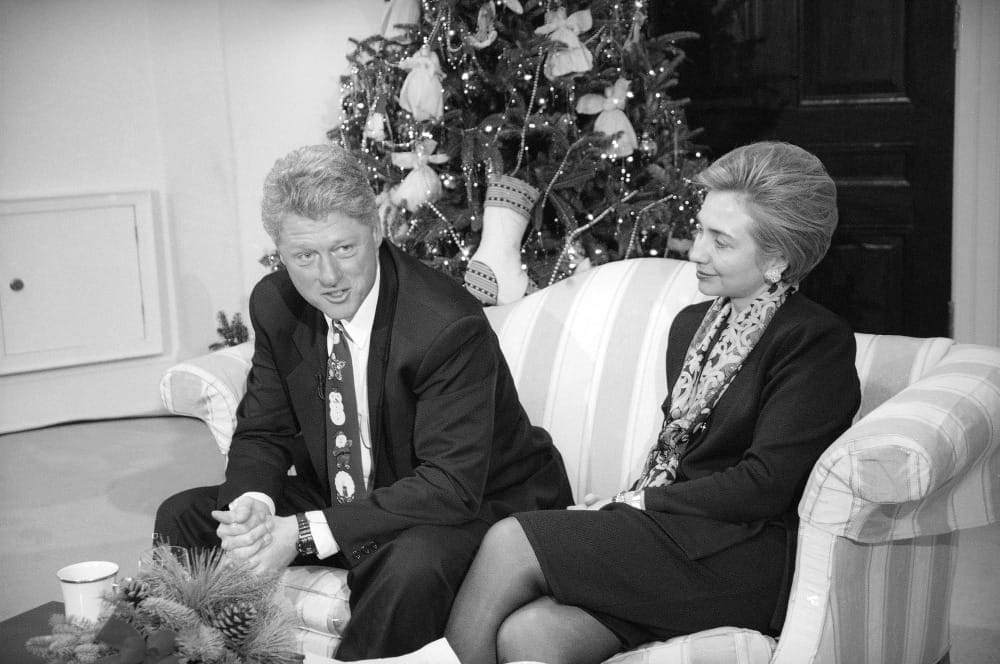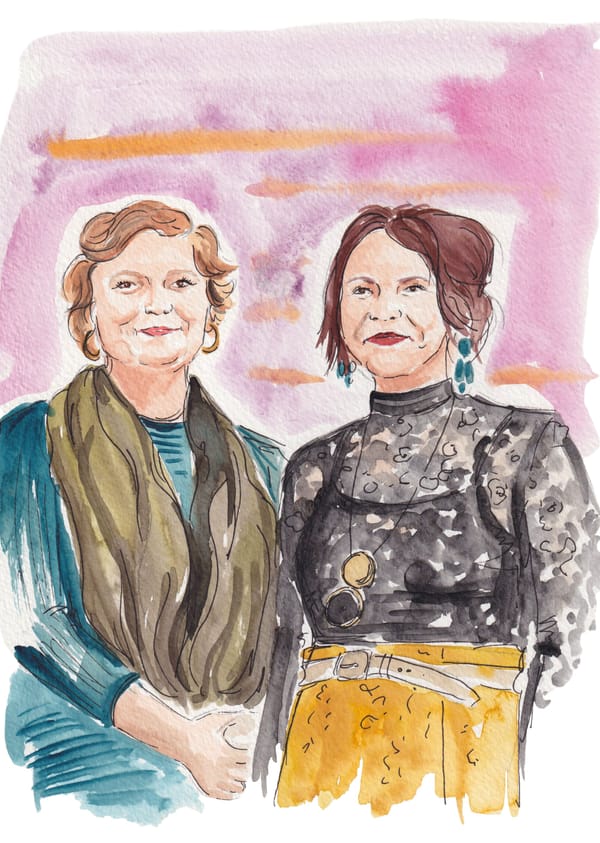How I Met Your Other
Why, by dint of a husband being important, does his wife somehow become a less-than, no matter her qualifications?

The Persistent is available as a newsletter. Sign up here to get it delivered to your inbox.
The first time I met the diplomat’s wife, she was delightful: funny, charismatic and—above all—a gracious host at a fancy event to which I’d been invited.
The second time I met her, I discovered her to be a great conversationalist, well-read, well-traveled and well-spoken. I so enjoyed our chat, in fact, that I suggested we meet a third time—this time, just the two of us.
And it was during this third meeting, over lunch, that I learned what I should have found out months prior: That she’s a brilliantly savvy businesswoman, with a stellar career and fierce resolve to change people’s lives and the world for the better, something she’s managing to do with aplomb—by running a non-profit—all while astutely performing her role as mother and wife.
Why did this come as such a surprise to me?
After all, it’s 2024. And while it’s true that we still have an extraordinarily long way to go in terms of creating a gender equal world, a handful of countries have reached gender parity in their governments. Some 14 countries have enshrined the same legal rights for women as men, and the number of women running Fortune 500 companies is technically at an all-time—albeit pitiful—high of 10.4%.
And that’s not all: About one-third of workers in the U.S.’s 10 highest-paying occupations are now women, which is obviously still not enough, but it’s a sharp rise from a measly 13% in 1980. The share of women in opposite-sex marriages who earn as much as—or more—than their husbands has approximately tripled over the past half century. And finally, it’s been a full four decades since women surpassed men in the number of Americans earning a bachelor’s degree each year.
Yet still, if a successful woman marries a successful man, the recognition of her success is often imperiled. It’s like attachment means that two things can’t exist at once, so one person has to—and, yes, it’s almost always the man—outshine the other.
Remember when Hillary Rodham Clinton—who The National Law Journal twice named one of the hundred most influential lawyers in America—suddenly became just “the first lady”? Even having served as a senator and the U.S. secretary of state, she is still regularly referred to as the “former first lady.”
And remember when the writer Joseph Epstein got all hot and bothered about Dr. Jill Biden using her honorific? “Madame First Lady—Mrs. Biden—Jill—kiddo,” his op-ed in The Wall Street Journal began. “Any chance you might drop the ‘Dr.’ before your name?” he went on. “‘Dr. Jill Biden’ sounds and feels fraudulent, not to say a touch comic.”
Of course, it hasn't escaped my notice that Dr. Biden’s husband is none other the President of the United States of America. And of course, in terms of jobs it doesn’t get much more prestigious than that. But also, why do we ever have to diminish a first lady’s—or indeed any woman’s—academic or professional achievements? It’s not like a hard-earned Ph.D. is a threat to foreign policy. Why, by dint of a husband being important, does his wife somehow become a less-than, no matter her qualifications?





